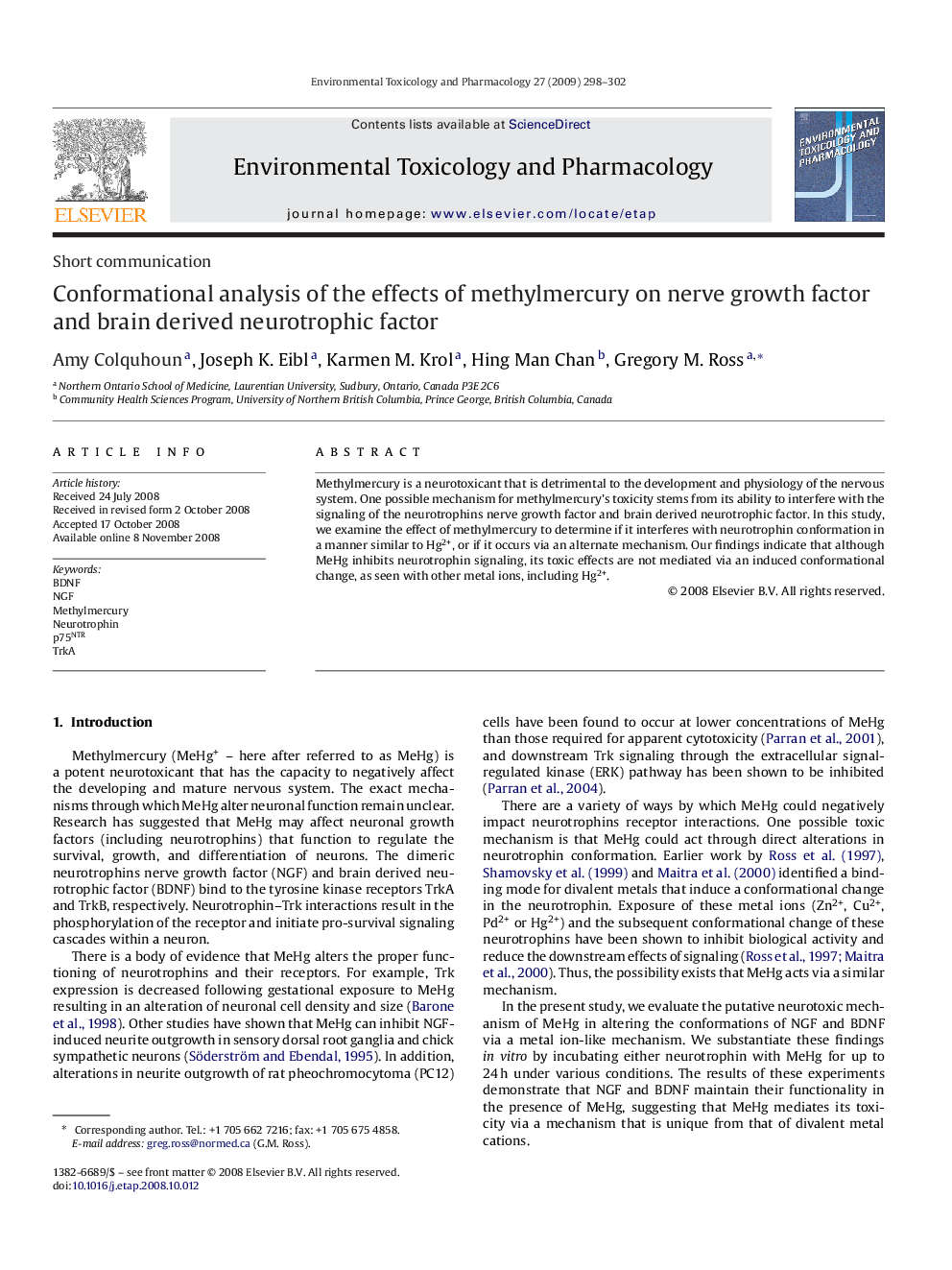| Article ID | Journal | Published Year | Pages | File Type |
|---|---|---|---|---|
| 2583962 | Environmental Toxicology and Pharmacology | 2009 | 5 Pages |
Abstract
Methylmercury is a neurotoxicant that is detrimental to the development and physiology of the nervous system. One possible mechanism for methylmercury's toxicity stems from its ability to interfere with the signaling of the neurotrophins nerve growth factor and brain derived neurotrophic factor. In this study, we examine the effect of methylmercury to determine if it interferes with neurotrophin conformation in a manner similar to Hg2+, or if it occurs via an alternate mechanism. Our findings indicate that although MeHg inhibits neurotrophin signaling, its toxic effects are not mediated via an induced conformational change, as seen with other metal ions, including Hg2+.
Related Topics
Life Sciences
Environmental Science
Health, Toxicology and Mutagenesis
Authors
Amy Colquhoun, Joseph K. Eibl, Karmen M. Krol, Hing Man Chan, Gregory M. Ross,
